 Petzlover
Petzlover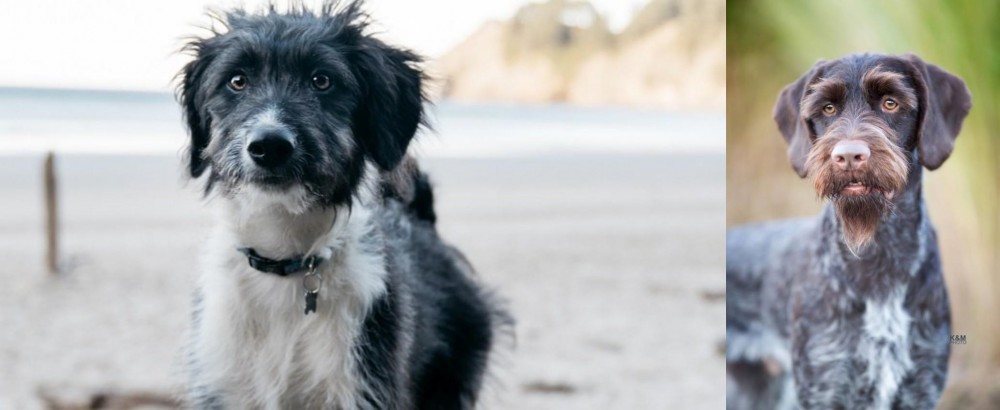 Bordoodle is originated from United States but German Wirehaired Pointer is originated from Germany. Bordoodle may grow 13 cm / 5 inches shorter than German Wirehaired Pointer. Both Bordoodle and German Wirehaired Pointer are having almost same weight. Both Bordoodle and German Wirehaired Pointer has almost same life span. Bordoodle may have less litter size than German Wirehaired Pointer. Bordoodle requires Low Maintenance. But German Wirehaired Pointer requires Moderate Maintenance
Bordoodle is originated from United States but German Wirehaired Pointer is originated from Germany. Bordoodle may grow 13 cm / 5 inches shorter than German Wirehaired Pointer. Both Bordoodle and German Wirehaired Pointer are having almost same weight. Both Bordoodle and German Wirehaired Pointer has almost same life span. Bordoodle may have less litter size than German Wirehaired Pointer. Bordoodle requires Low Maintenance. But German Wirehaired Pointer requires Moderate Maintenance
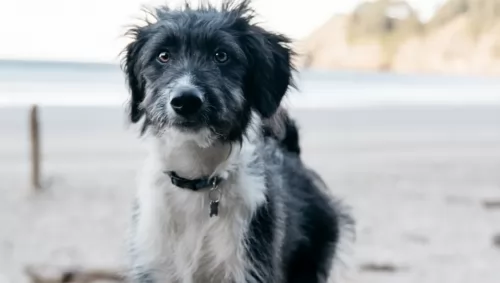 Known also as a Borderpoo or Borderdoodle, the Bordoodle is a designer- or hybrid breed which hails from the United States of America.
Known also as a Borderpoo or Borderdoodle, the Bordoodle is a designer- or hybrid breed which hails from the United States of America.
Both the dogs used in the development of this cross-breed are the Poodle and the Border Collie, and both these dog breeds have their own lengthy histories.
The history of the Bordoodle is short, as it is a modern crossbreed which has been purposefully bred by breeders to bring about a dog with certain looks and temperament.
 Medium to large sized, the German Wirehaired Pointer is a griffon type dog breed hailing from Germany and developed for hunting purposes in the 19th century.
Medium to large sized, the German Wirehaired Pointer is a griffon type dog breed hailing from Germany and developed for hunting purposes in the 19th century.
Known as the Drahthaar in Germany, the dog is a mix of griffon, Deutscher Stichelhaar, German Shorthaired Pointer, Deutscher Kurzhaar as well as the Pudelpointer.
He was imported into the United States in the 1920s, and it was in 1953 that the German Drahthaar Club of America was formed.
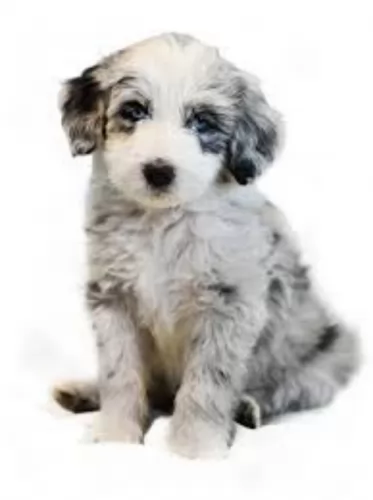 The Bordoodle isn’t a purebred dog but is a cross between a Poodle and a Border Collie.
The Bordoodle isn’t a purebred dog but is a cross between a Poodle and a Border Collie.
He has a soft, medium length coat which is inclined to be wavy. Colors are essentially black and white but chocolate, cream, fawn, merle and grey are also seen.
He is a medium sized dog standing at between 38cm and 55cm and weighing between 13kg and 27kg. The long tail is feathery, the ears floppy or semi-erect and the brown eyes are bright and intelligent. The muzzle is medium to long.
As with any mixed breed dog, the Bordoodle can take after either parent dog but generally the Borderdoodle will be a medium sized dog.
With the Bordoodle you can expect nothing less than a highly intelligent dog. That is because both the Poodle and the Border Collie are super intelligent dogs so the Bordoodle is guaranteed to have got a good portion of this intelligence from both breeds.
It makes training and socialization easy for the dog. It is important for your Bordoodle to be trained and socialized if you want him to be obedient and relaxed around strangers and other pets. As it is, his amicable nature makes the hybrid dog of yours a great family pet – getting on well with other pets in the home as well as with children.
Apart from being such a smart dog, the Bordoodle is active, playful, loving and devoted – everything a serious dog owner wants in a pet. This is a dog that doesn’t really know the meaning of the word aggressive.
 Well muscled, this is a medium to large sized dog standing at between 57 and 68cm in height and weighing between 27 and 32kg.
Well muscled, this is a medium to large sized dog standing at between 57 and 68cm in height and weighing between 27 and 32kg.
He has a weather resistant wiry coat which is of medium length and which is wiry and harsh. Coat color is liver and white as well as black flecked.The undercoat provides insulation against the cold.
He has quite a bit of facial hair in terms of eyebrows, beard and whiskers.He has webbed feet, typical of German Pointers. His tail is docked to about two-fifths of its natural length, but these days it is often left long.
Lively, playful, affectionate and intelligent, the German Wirehaired Pointer is easy to teach. He becomes wonderfully obedient with training and socialization and responds well to instructions to sit, come and stay.
He is an active dog and likes to be involved in the activities that his human family are involved in. He becomes bored and frustrated when he doesn’t get the exercise and attention he craves.
He isn’t suited to life in the city where the premises are small as he needs plenty of vigorous exercise every day. They do well in the country where they have plenty of place to run and where their hunting skills come into action.
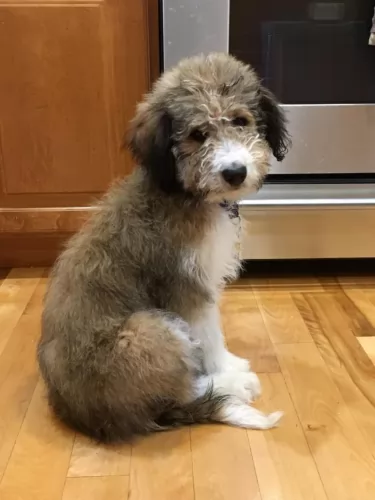 Bordoodles have two great dog breeds to thank for the way they turn out. When you think of the Border Collie and Poodle, you know you’re going to get a dog that is friendly, social, playful, loving and devoted – the ideal family pet.
Bordoodles have two great dog breeds to thank for the way they turn out. When you think of the Border Collie and Poodle, you know you’re going to get a dog that is friendly, social, playful, loving and devoted – the ideal family pet.
Intelligent, he is easy to train too, and with excellent care, you’re going to have a most wonderful family pet and companion, full of fun and life.
 German Wirehaired Pointers make awesome pets as they’re lively, playful, social and loving. They particularly suit living in a home where the people are active, outdoor types.
German Wirehaired Pointers make awesome pets as they’re lively, playful, social and loving. They particularly suit living in a home where the people are active, outdoor types.
They make superb jogging- or cycling companions and will thrive on sharing these activities with a family member. He is a dog who has a need to be loved and included in all that his family gets up to. He wants lots of pats and stroking to show him that you care.
Give him the love and care he craves and you’re guaranteed to have the most wonderful loving pet.
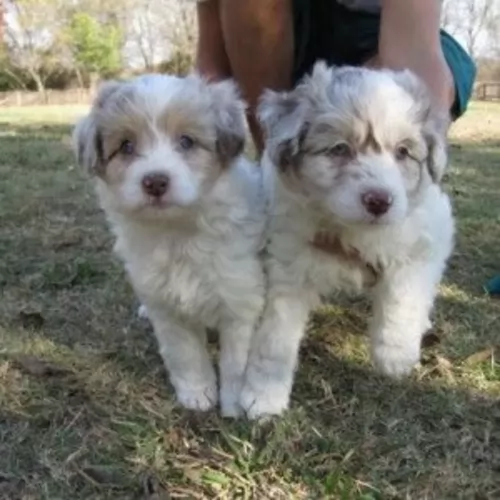 Bordoodles, when well cared for, can live to be 12-15 years of age. There aren’t going to be many health issues to contend with with your Bordoodle as there are no known health problems in this robust breed.
Bordoodles, when well cared for, can live to be 12-15 years of age. There aren’t going to be many health issues to contend with with your Bordoodle as there are no known health problems in this robust breed.
Nonetheless there are some common dog illnesses that you need to be aware of such as progressive retinal atrophy, hip dysplasia and hypothyroidism.
With hypothyroidism, the thyroid gland in the neck of your pet produces a hormone known as thyroxine that controls metabolism, but the disease hypothyroidism makes it that the gland doesn’t make enough thyroxine. Signs that your dog has this illness includes a dull coat, inflamed skin and even hair loss.
Get him to the vet immediately who will do blood tests and provide treatment. Mercifully it isn’t something that is life-threatening.
 German Wirehairs are generally healthy, and when you look after them well they can reach 12, 13 or 14 years of age. Also, if both German Wirehaired Pointer parents have certificates proving they were tested and cleared of hip dysplasia, hereditary eye diseases and blood-clotting disease, then your pet will have less risk of developing these conditions.
German Wirehairs are generally healthy, and when you look after them well they can reach 12, 13 or 14 years of age. Also, if both German Wirehaired Pointer parents have certificates proving they were tested and cleared of hip dysplasia, hereditary eye diseases and blood-clotting disease, then your pet will have less risk of developing these conditions.
Your pet isn’t likely to get sick, but like all breeds of dogs, they're prone to certain diseases and conditions. Hip Dysplasia is something that can be noticed when your pet is still a puppy.
This is a heritable condition where the thigh bone doesn't fit properly into the hip joint. Your dog can battle with pain so that he no longer wants to play, he battles to get up after lying down and he may even begin to show signs of lameness. Arthritis can develop too.
You’ll notice cloudiness on the eye lens that can grow over time. Not all cataracts impair vision, although there are some instances where vision loss is experienced. Cataracts can sometimes be surgically removed with good results.
 The Bordoodle is a dog which doesn’t shed that much so his grooming requirements are low and he is considered as a hypoallergenic dog.
The Bordoodle is a dog which doesn’t shed that much so his grooming requirements are low and he is considered as a hypoallergenic dog.
He will need to have his coat brushed at least twice a week to keep it shiny, soft and smooth. Depending on how your Bordoodle turns out, he may even require trimming at a professional groomer.
Make time to check his ears inside and out and learn how to clean the inside of his ears to avoid infection and wax build-up.
Dental hygiene is also imperative in dogs, and neglecting to do this will mean food particles and bacteria accumulating along your pet’s gumline, resulting in gingivitis and periodontal disease.
Every dog will require regular exercise and you can get your Bordoodle to join you in your walks. He is the kind of dog that can happily adjust to city or country life, but he will still need to have some ball games and other activities to keep him busy and happy.
He isn’t a dog that can be left alone day after day in the backyard. He is social and playful and loves the companionship of his human family.
If you feed your Bordoodle kibble from some of the top quality commercially produced foods, always research the dog food and take a good look at the ingredients.
The pet food you choose plays an important role in the longevity of your pet. There are commercially manufactured foods that have such poor ingredients that they can actually shorten your pet’s lifespan and cause stress to the kidneys and liver.
If in any doubt about what to feed your Bordoodle, speak to your vet. Cooked brown rice, cooked vegetables and cooked chicken can sometimes be mixed into your pet’s kibble. Raw meat should also occasionally be added in to ward off skin allergies.
 Your German Wirehaired Pointer isn’t a heavy shedder so brushing his coat twice a week will be ideal for him to rid the coat of loose hairs.
Your German Wirehaired Pointer isn’t a heavy shedder so brushing his coat twice a week will be ideal for him to rid the coat of loose hairs.
Your German Wirehaired Pointer is an active dog and this has to be taken into account when looking at diet. He will require a diet with quality protein. You’ve also got to look at things such as whether your dog is neutered or spayed as they require less calories. On the other hand there are dogs that will require more calories because of their activity levels.
Make sure your German Wirehaired Pointer eats a top quality dog food. Add in some homemade food such as cooked brown rice, chicken and vegetables from time to time as well as some raw meat. You have to constantly remember that your dog’s health depends on the nutrition you provide.